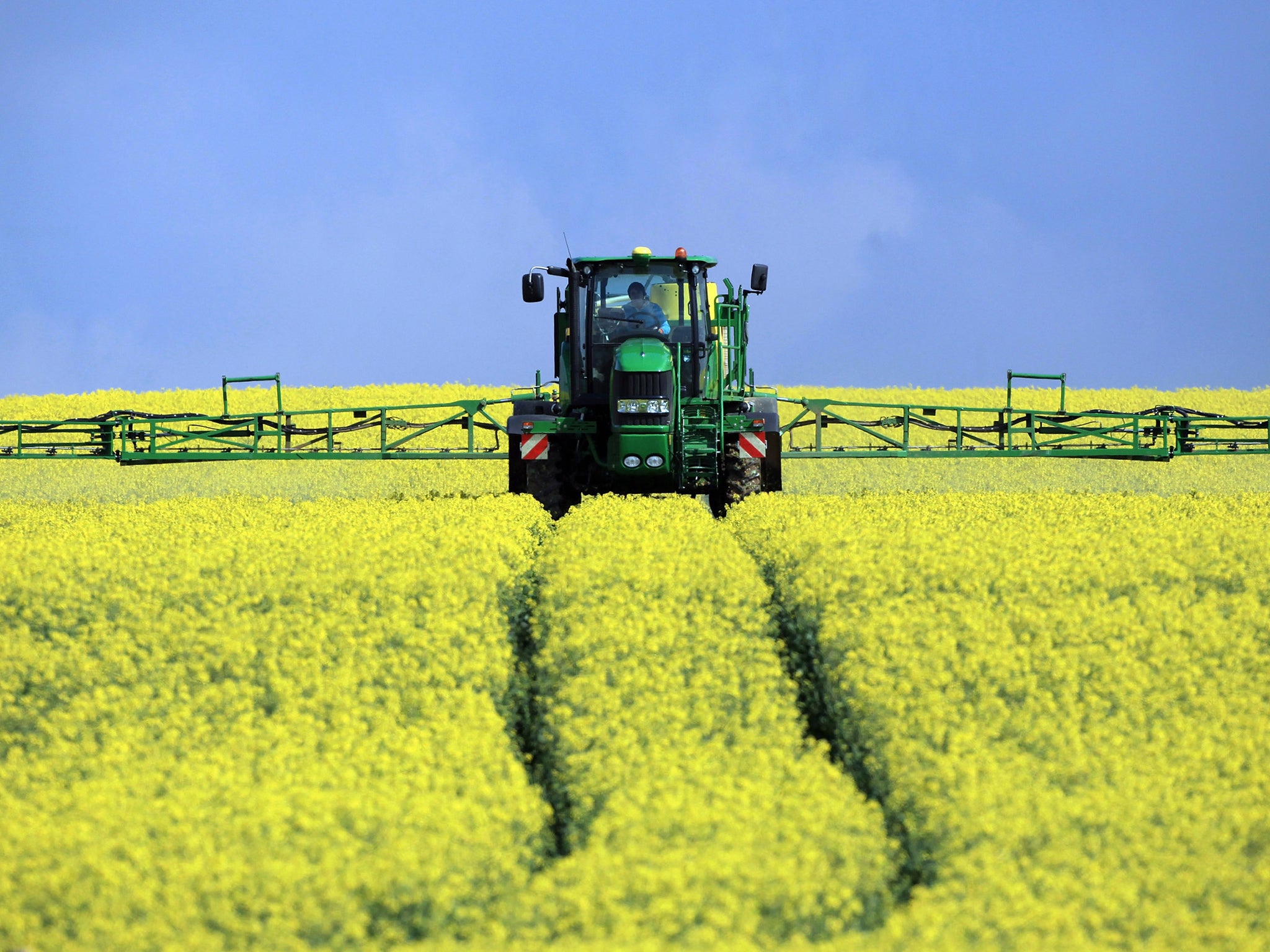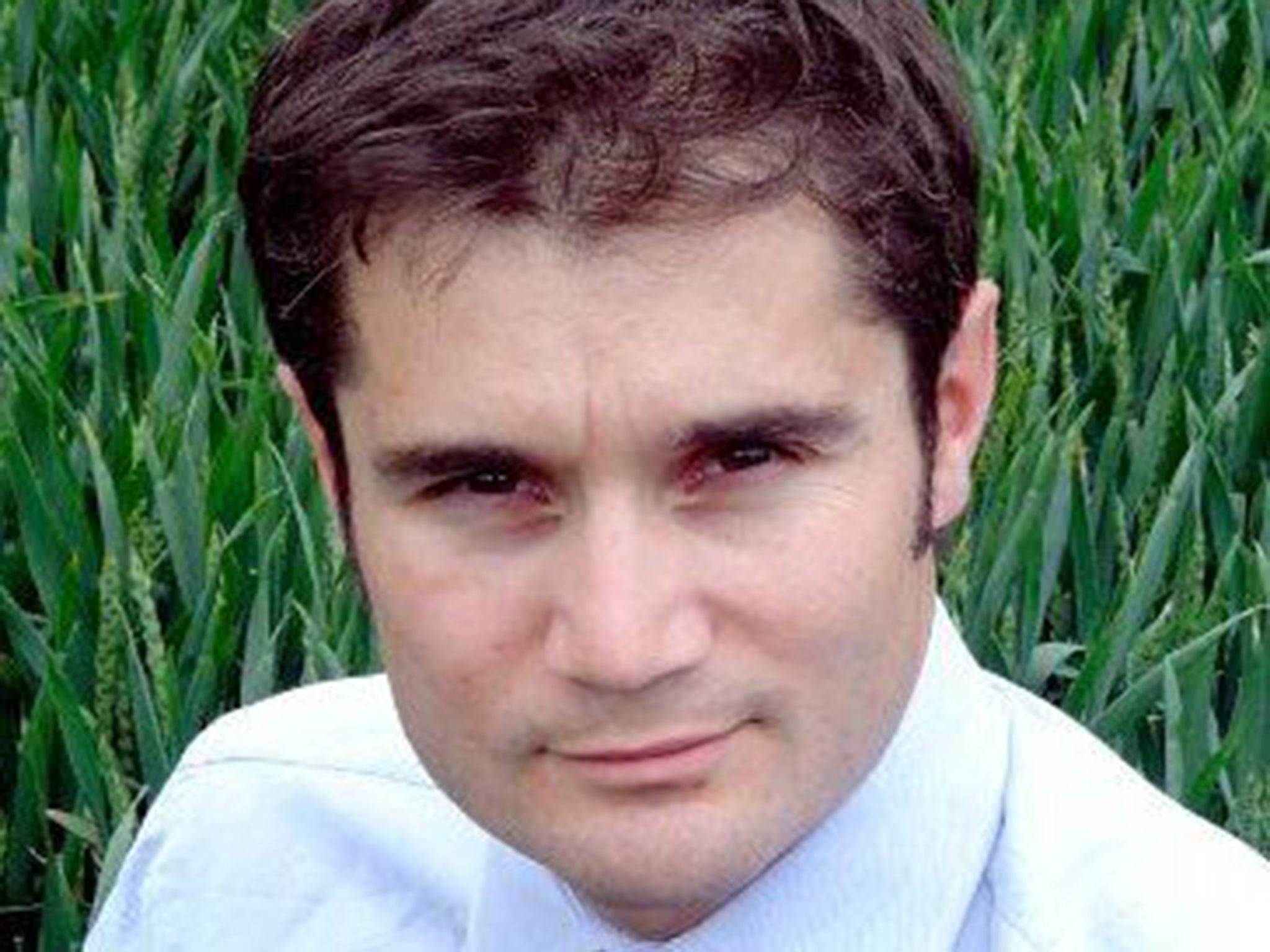Pesticide ban has not hit crops, with bumper oilseed harvest forecast
Farmers had claimed that the ban on nerve-agent pesticides would decimate the crop

Your support helps us to tell the story
From reproductive rights to climate change to Big Tech, The Independent is on the ground when the story is developing. Whether it's investigating the financials of Elon Musk's pro-Trump PAC or producing our latest documentary, 'The A Word', which shines a light on the American women fighting for reproductive rights, we know how important it is to parse out the facts from the messaging.
At such a critical moment in US history, we need reporters on the ground. Your donation allows us to keep sending journalists to speak to both sides of the story.
The Independent is trusted by Americans across the entire political spectrum. And unlike many other quality news outlets, we choose not to lock Americans out of our reporting and analysis with paywalls. We believe quality journalism should be available to everyone, paid for by those who can afford it.
Your support makes all the difference.Britain’s oilseed rape harvest looks set to be better than normal this summer, according to figures which appear to undermine farmers’ claims that the ban on nerve-agent pesticides would decimate the crop.
Figures for the first oilseed rape harvest since the ban on neonicotinoid pesticides was introduced show that the yield so far is slightly higher than the average for the previous decade, when the chemicals were used on virtually all the oilseed rape grown in the UK.
The EU introduced a two-year ban on neonicotinoids at the end of 2013 to allow more research into their effects, after scientists found evidence that they present a danger to bees and other pollinators.
The National Farmers Union (NFU) challenged the ban, arguing that the pesticides were essential to prevent crops being destroyed by cabbage stem flea beetles.

The NFU said in May: “Farmers across the country are continuing to suffer heavy losses through oilseed rape crop damage following restrictions to the availability of neonicotinoid.”
But campaigners said the new figures from the independent Agriculture and Horticulture Development Board (AHDB) suggested the NFU’s claims of damage were greatly exaggerated.
The data relates to the 15 per cent of the oilseed rape crop planted last summer that has been harvested so far and finds yields to be between 3.5 and 3.7 tonnes per hectare, compared with an average of 3.4 tonnes in the previous 10 years.
“This is further evidence that neonicotinoids are not essential to maintaining crop yields,” said Matt Shardlow, the chief executive of the insect charity Buglife.
The NFU’s chief arable adviser, Guy Gagen, said that the figures should be treated with caution because they related to only a small fraction of the harvest for a crop with yields that were notoriously difficult to predict.
He also highlighted that the tonnes-per-hectare yields related only to fields where the crop had been successfully harvested, ignoring the 5 per cent that was damaged or destroyed. Most of this damage could have been caused by beetles – although opponents of the pesticides say that a certain percentage of the oilseed rape crop is lost each year even with neonicotinoids.
Mr Gagen also pointed to the AHDB’s qualification of its initial harvest data which said: “As harvest of oilseed rape only began in earnest in the last two weeks, there is little quality data available”.
Even so, the total volume of oilseed rape harvested this year is likely to be at least as high as it was before the ban, according to forecasts from the UK’s largest distributor of seeds, fertiliser and grain. This is despite some farmers switching to other plants this year for fear that the ban would reduce oilseed rape yields.
An analysis published by Frontier Agriculture late on 31 July, after the AHDB figures had been released, said: “Yields are coming in above expectations… Even with the 7 per cent area reduction in UK [ rape] this year, it looks like the crop size will be similar, if not greater, than last year.”
About two weeks ago the Government agreed to partially lift the ban following sustained lobbying from the NFU. It agreed to allow two pesticides to be used for 120 days on about 5 per cent of England’s oilseed rape crop – a decision opponents say looks especially ill-advised given the latest yield figures.
Join our commenting forum
Join thought-provoking conversations, follow other Independent readers and see their replies
Comments